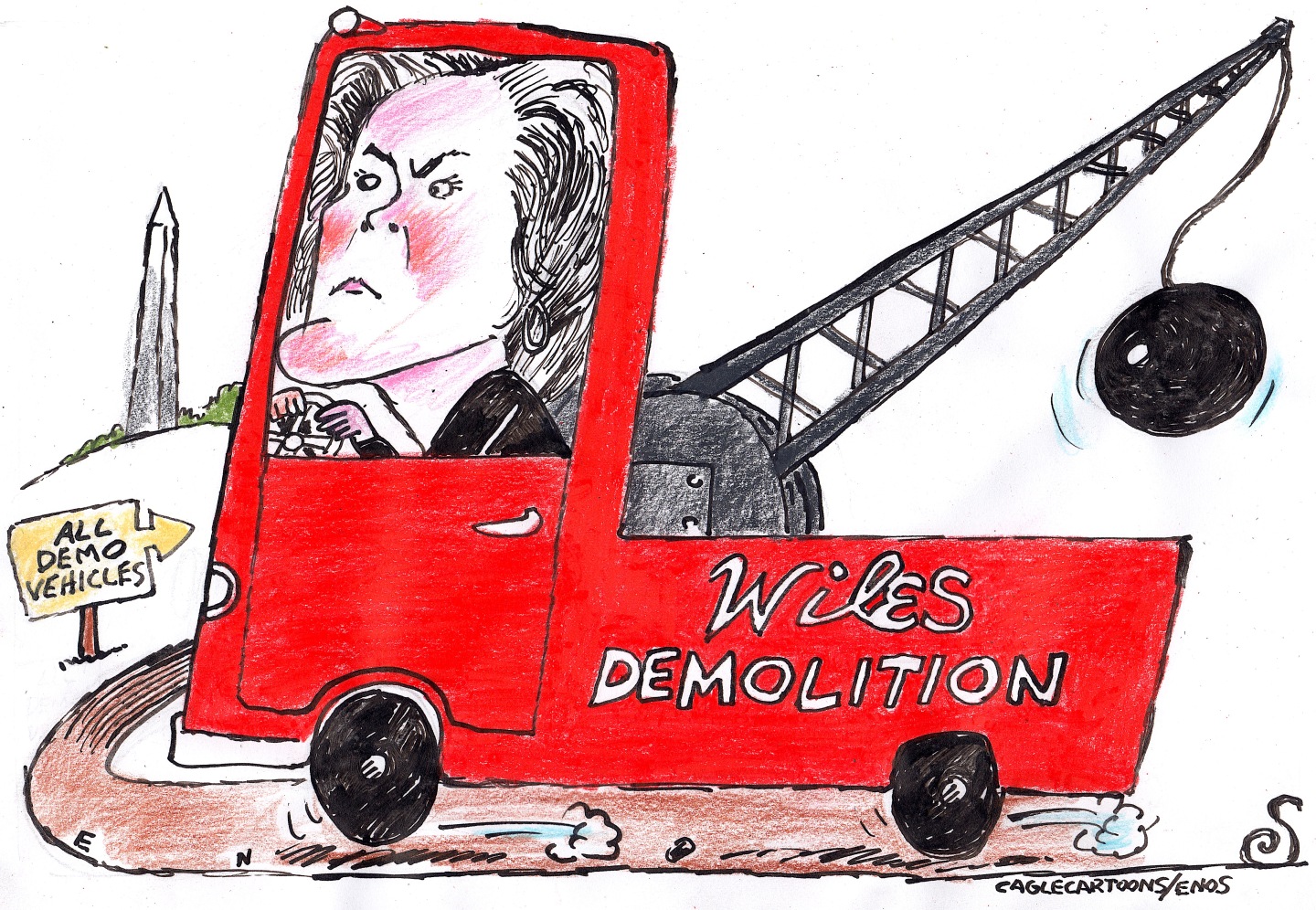Cuba accuses U.S. of 'deliberately lying' about mysterious alleged sonic attacks on U.S. diplomats


On Thursday, Cuban Foreign Minister Bruno Rodriguez said the Trump administration was "deliberately lying" about purported sonic attacks on U.S. diplomats and spies in Havana, using the mysterious health issues "as a political pretext for damaging bilateral relations and eliminating the progress made" while Barack Obama was president. Starting last November, 24 U.S. officials or their relatives in Havana were attacked somehow by unknown culprits, the Trump administration says, with many of the diplomats reporting a strange noise before falling ill. In response, the U.S. pulled 60 percent of its diplomatic staff from Cuba and expelled two-thirds of Cuba's diplomatic staff in Washington.
Cuban officials up to and including President Raul Castro have insisted Cuba had nothing to do with the sounds, and the U.S. only accuses Havana of failing to protect the U.S. diplomats. In his press conference Thursday, Rodriguez said Cuba doesn't have any such sonic weaponry and argued that the range of symptoms reported — hearing loss, headaches, even concussions — could not have been caused by a single device.
Acoustics experts broadly agreed with that assessment, telling The New York Times in October that the "sonic weapons" theory is "more appropriate to a James Bond movie" than real life. Infrasound — frequencies to low for humans to hear — are hard to focus and mostly just annoying to humans. Ultrasound — frequencies too high human ears — is a possible culprit, but isn't known to have been weaponized and would be neutered by such things as walls and distance.
The Week
Escape your echo chamber. Get the facts behind the news, plus analysis from multiple perspectives.

Sign up for The Week's Free Newsletters
From our morning news briefing to a weekly Good News Newsletter, get the best of The Week delivered directly to your inbox.
From our morning news briefing to a weekly Good News Newsletter, get the best of The Week delivered directly to your inbox.
"I believe those people got something that hurt them," Jun Qin, an acoustic engineer at Southern Illinois University, told the Times. "But it could be something in the environment," like a virus or bacteria, or other toxins. Timothy Leighton, a professor of ultrasonics at Southampton University, suggested another possible culprit: "If you make people anxious that they're under attack from an ultrasonic weapon, those are the symptoms you'll get."
A free daily email with the biggest news stories of the day – and the best features from TheWeek.com
Peter has worked as a news and culture writer and editor at The Week since the site's launch in 2008. He covers politics, world affairs, religion and cultural currents. His journalism career began as a copy editor at a financial newswire and has included editorial positions at The New York Times Magazine, Facts on File, and Oregon State University.
-
 Political cartoons for December 20
Political cartoons for December 20Cartoons Saturday’s political cartoons include drowning rats, the ACA, and more
-
 5 fairly vain cartoons about Vanity Fair’s interviews with Susie Wiles
5 fairly vain cartoons about Vanity Fair’s interviews with Susie WilesCartoon Artists take on demolition derby, alcoholic personality, and more
-
 Joanna Trollope: novelist who had a No. 1 bestseller with The Rector’s Wife
Joanna Trollope: novelist who had a No. 1 bestseller with The Rector’s WifeIn the Spotlight Trollope found fame with intelligent novels about the dramas and dilemmas of modern women
-
 Nobody seems surprised Wagner's Prigozhin died under suspicious circumstances
Nobody seems surprised Wagner's Prigozhin died under suspicious circumstancesSpeed Read
-
 Western mountain climbers allegedly left Pakistani porter to die on K2
Western mountain climbers allegedly left Pakistani porter to die on K2Speed Read
-
 'Circular saw blades' divide controversial Rio Grande buoys installed by Texas governor
'Circular saw blades' divide controversial Rio Grande buoys installed by Texas governorSpeed Read
-
 Los Angeles city workers stage 1-day walkout over labor conditions
Los Angeles city workers stage 1-day walkout over labor conditionsSpeed Read
-
 Mega Millions jackpot climbs to an estimated $1.55 billion
Mega Millions jackpot climbs to an estimated $1.55 billionSpeed Read
-
 Bangladesh dealing with worst dengue fever outbreak on record
Bangladesh dealing with worst dengue fever outbreak on recordSpeed Read
-
 Glacial outburst flooding in Juneau destroys homes
Glacial outburst flooding in Juneau destroys homesSpeed Read
-
 Scotland seeking 'monster hunters' to search for fabled Loch Ness creature
Scotland seeking 'monster hunters' to search for fabled Loch Ness creatureSpeed Read
